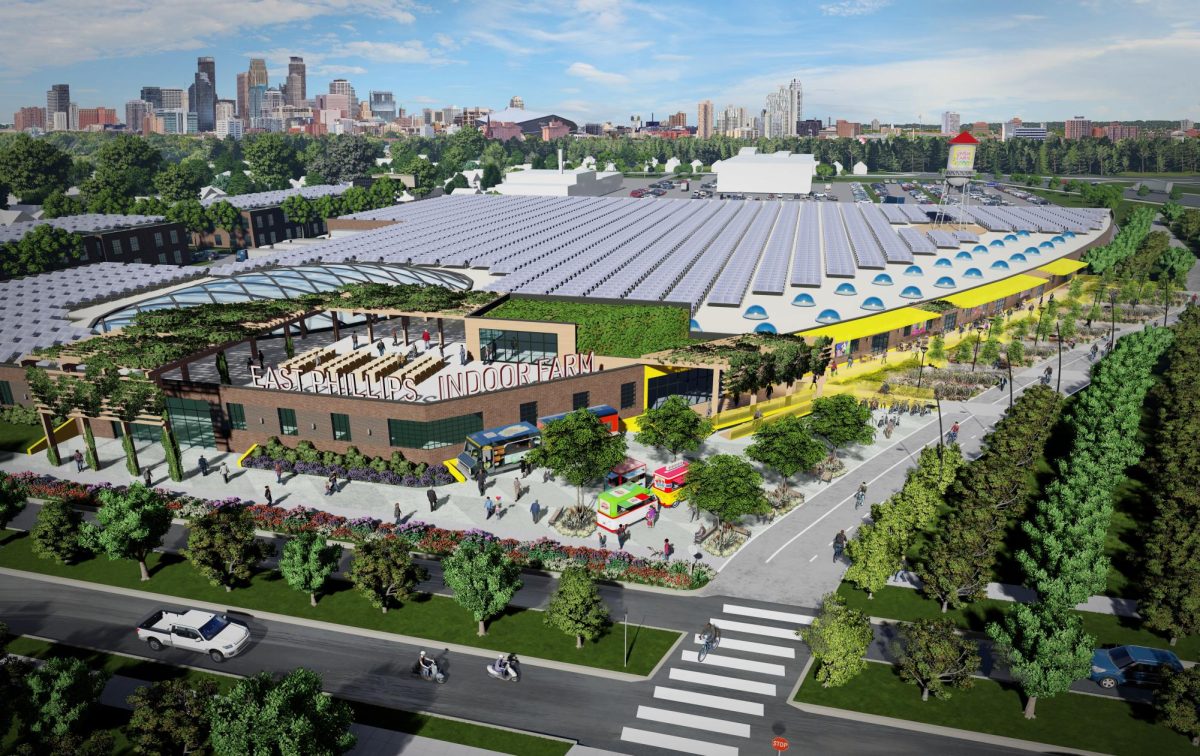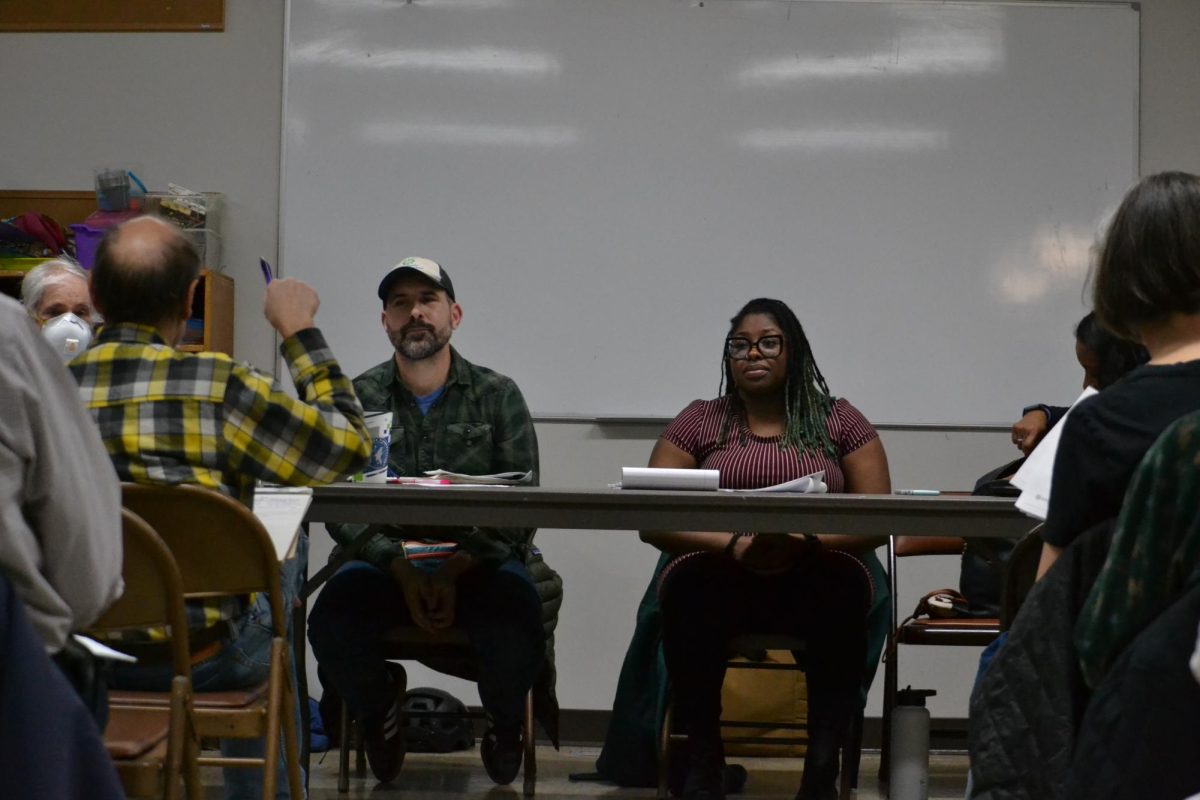East Phillips is working toward building an urban farm for the community after Minneapolis agreed to sell the former Roof Depot warehouse site in May.
City officials and East Phillips residents battled over the Roof Depot site for years, with the city planning to demolish the building and build a consolidated public works facility despite community backlash. The site sits on high levels of toxic arsenic from a former manufacturing plant that leaked chemicals into the neighborhood for decades.
The pollution caused residents to suffer from health problems such as asthma, according to a 2021 City Council analysis, which made many concerned over a demolition’s consequences for the community.
Now, the East Phillips Neighborhood Institute (EPNI) is fundraising $3.7 million by Sept. 7 to purchase the 7.5-acre site for their proposed neighborhood hub that would include an indoor urban farm, affordable housing and skills training centers.
“When we’re successful, this will become a real guide to help on process in future projects,” said EPNI Board President Dean Dovolis. “This really becomes a beacon of hope and process for a lot of communities, and so we’re sort of honored as East Phillips to really help lead this effort and make this happen.”
Dovolis said EPNI raised around $150,000 in the past month, much of which came from individual donors. Afro Deli owner Abdirahman Kahin and local entrepreneur Diraneh Robleh pledged to raise the $3.7 million needed by Sept. 7 to acquire the building, according to Dovolis.
However, EPNI will not be able to close the deal until June 2024, when the state legislature will likely provide $6.5 million for the city to build its public works facility elsewhere. Dovolis said they hope to begin construction right after closing and have the building ready for tenants six to nine months later.
Right now, EPNI is focused on making sure the city cooperates, Dovolis said. He added they have not been inside the building yet, as there have been difficulties in negotiating a right-of-entry agreement with the city, which still owns the land.
Without being allowed inside the building, Dovolis said EPNI has not been able to complete tasks essential to planning, like making drawings and performing environmental testing.
“It’s like putting a bag over your head, and then ask me to describe what the room looks like,” Dovolis said.
Minneapolis spokesperson Sarah McKenzie said in a statement sent to the Minnesota Daily the city is in the process of responding to requests to change right-of-entry and is working on the land sale process and a proposed purchase agreement.
Elizabeth Royal, an attorney for EPNI, said the city’s right-of-entry agreement is not the only hurdle as negotiations continue. Royal said she is hopeful they can get access to the building within the week but finds it unusual they haven’t heard back on the proposed purchase agreement.
“It’s a little worrisome that it’s almost been four weeks that we have proposed a purchase agreement and we have not heard back from the city,” Royal said.
A stepping stone
EPNI has plans for not only an indoor urban farm for the site, but other community businesses such as a bike shop, a cafe and a commercial kitchen. EPNI board member Cassandra Holmes said the site will not be just a community farm, but a space where residents can find opportunities.
“It’s a stepping stone so people can get in, get green jobs, green training and bring in education and move up the ladder,” Holmes said.
Holmes added the urban farm can develop with other projects such as housing for the Phillips and Little Earth communities. These projects could change the dynamic of living for some of Minneapolis’ most diverse residents –– especially the Indigenous community –– and help move people forward in life.
“It’ll be different for our future kids,” Holmes said.
Chad Hebert, Little Earth’s urban farm program manager, worked to get local youth involved with the urban farm’s training and summer work programs. Around 2018, he was contacted by Holmes to help with EPNI’s urban farm due to Little Earth’s success.
“What I’m most grateful and proud of is my retention. Last year, I think we had 51 [kids] and 48 of them finished the entire project,” Hebert said.
Hebert added kids not only take care of the urban farm, but use its bounty to make everything from canned pickles to pizza to roasted pig.
The program teaches youth farming, provides for the community and incentivizes kids to attend school by providing money for supplies, Hebert said. The kids receive a stipend at the end of August, allowing them funds for school supplies and shopping.
Giving kids resources to avoid stigma or bullying from not having clothes or supplies will help keep them in school, Hebert said. Eventually, the goal is for the urban farm and similar projects to have generational impacts on the community.
“This can live long past me, that [kids] pass it on to the next generation,” Hebert said.






















